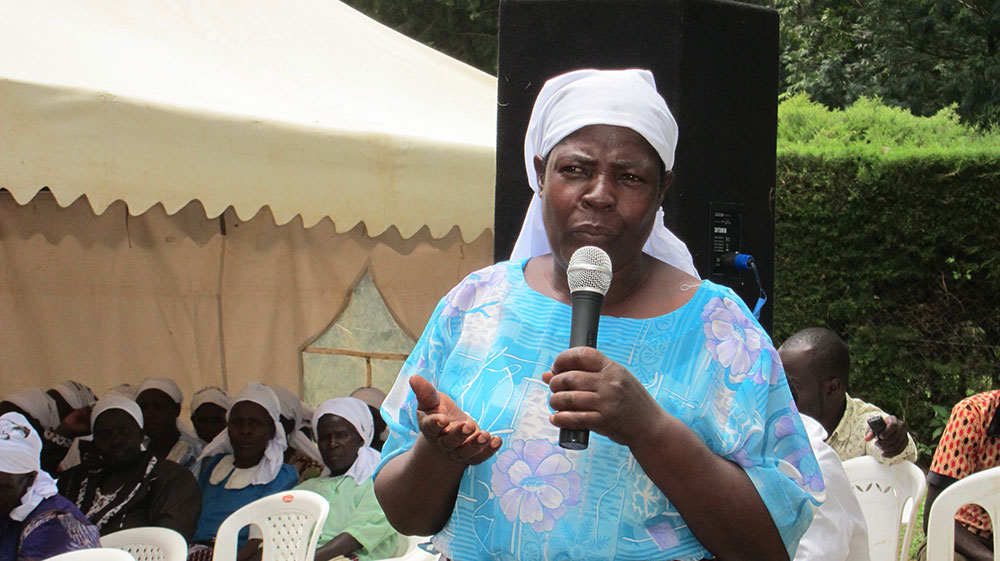Field Stories
Ten inspiring global nutrition stories
December 17, 2024
WP_Term Object
(
[term_id] => 49
[name] => Field Stories
[slug] => all-field-stories
[term_group] => 0
[term_taxonomy_id] => 49
[taxonomy] => news-category
[description] => Discover the personal stories of people whose lives have been impacted by better nutrition, and those working tirelessly to deliver it.
[parent] => 0
[count] => 180
[filter] => raw
)
“I am converted”: Birthing access to safer deliveries in Kenya
Irene Omurunga was reluctant to give up her role as a Traditional Birth Attendant (TBA) in Mumias West, Kakamega County in Kenya. “I used to be a famous Traditional Birth Attendant known in the entire village,” she explains. “I was a staunch TBA who could not be transformed.”
Posted on May 25, 2015


Irene Omurunga was reluctant to give up her role as a Traditional Birth Attendant (TBA) in Mumias West, Kakamega County in Kenya.
“I used to be a famous Traditional Birth Attendant known in the entire village,” she explains. “I was a staunch TBA who could not be transformed.”
But a transformation is taking place in Kakamega County through MI’s Community-based Maternal and Newborn Health and Nutrition Project, where women like Irene are learning new skills to better support women in their communities, training to be Birth Companions as a valued part of the health team.
TBAs in the area have historically been known to compete with the formal health facility delivery care, resulting in high rates of unskilled birth attendance with the associated risks of maternal and newborn morbidity and mortality.
The Linda Afya Ya Mama na Mtoto project developed and is now ensuring implementation of guidelines to transition TBAs into the new role as Birth Companions.
The new roles entail re-directing their clients and accompanying them to deliver in health facilities, as well as providing continuous support during labour and support for early and exclusive breastfeeding. Irene and her colleagues receive an incentive package and feel their Birth Companion role is respected among health facility staff.
The Linda Afya Ya Mama na Mtoto project, funded by the Micronutrient Initiative (MI) through the Government of Canada, is a collaborative effort between MI, the Ministry of Health, AMREF and PRONTO, and is bringing important health and nutrition services closer to the women who need them.
It focuses on improving the quality and uptake of antenatal care, delivery and post-natal care in hard-to-reach populations and integrating essential nutrition interventions, especially iron and folic acid supplementation, delayed cord-clamping and breastfeeding, into maternal health programs so that every opportunity is seized to give children the right start in life. The Birth Companions are seen as a key and trusted resource for women who are part of the project.
More than 3,000 women were escorted by Birth Companions to deliver in health facilities under skilled care between June and December of 2014, including 85 women by Irene herself.
“I was a staunch TBA who could not be transformed, but thanks to the project I received training and I am converted,” she says.